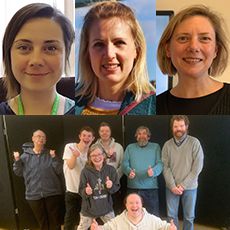Un-Labelling the Language
Exploring Labels, Jargon and Power through Participatory Arts Research with Arts Therapists and People with Learning Disabilities
DOI:
https://doi.org/10.15845/voices.v22i3.3391Sammendrag
People with learning disabilities are often excluded from society. This is changing; however, discrimination persists. Language is one way in which people can be excluded. In healthcare and research, the use of labels and jargon can be a barrier to inclusion. A group of artist-researchers from the UK, some with learning disabilities and some without, wanted to explore power and language in the lives of people with learning disabilities. The group included social change activists The Lawnmowers Independent Theatre Company - who identify as having learning disabilities, and arts therapist researchers working in the National Health Service (NHS). Using arts-based participatory action research methods, we held two co-produced workshops. The first, explore power, jargon and labels for people with learning disabilities and the second, with the arts therapists only, deepened our understanding of exclusion. We used a range of arts-based approaches including improvised performance and music, reflective art making and poetry writing. This article describes the process of working together and how the arts helped us to connect and explore challenging issues. We discuss the different ways labels impact who we are and the power they have to include or exclude people with learning disabilities from healthcare and research. Our participatory approach supported multifaceted knowledge to emerge, which both empowered participants and laid foundations for an ongoing social change partnership. We share our recommendations to make research and healthcare more accessible for people with learning disabilities.

Nedlastinger
Ytterligere filer
Publisert
Hvordan referere
Utgave
Seksjon
Lisens
Opphavsrett 2022 Nicki Power, Emma Windle, Catherine Carr, Claire Hills-Wilson

Dette verket er lisensiert under Creative Commons Attribution 4.0 International License.
Articles published prior to 2019 are subject to the following license, see: https://voices.no/index.php/voices/copyright

